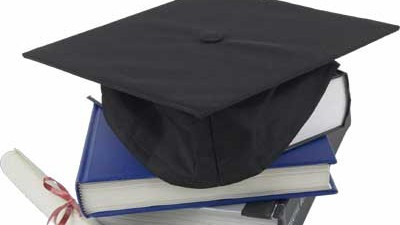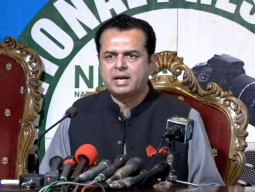
Their ‘study abroad’ experience turned out to be very different from what the students had been expecting. One of them is 25 -year-old Bilal Khan, the son of a former Balochistan senator Raza Khan. And he says the primary problem was that they didn’t get what they had been promised. “We were studying under a new system – the New Programme of Formation Doctors – which is very different from the Latin American Medical School system (ELAM) of Cuba,” explains Khan. “We were given to understand, from the advertisement and the orientation, that we would be pursuing an ELAM degree.”
But the Cuban government said they had made no such promise. The Pakistani students, along with the other 6,000 scholarship students, were studying at the Maximo Santiago Haza Medicine Faculty, which awards a degree in General Comprehensive Medicine – the Cuban equivalent of the MBBS. This, felt the Cubans, should have been enough.
And then the Pakistani students started complaining. The first batch of 350 students sent from Pakistan in February 2007 had been dissatisfied with the facilities at the campus and, according to the Cuban authorities, violated the laws of the university. They wouldn’t attend class, were rude to the professors, disregarded the Cuban authorities and got into verbal and physical skirmishes. When the second batch of 650 students joined in 2008, the ranks of agitating students swelled.
“Once we got to third year – when medical practice is compulsory – we demanded the authorities shift us to the main campus in Havana where the quality of education is better and all medical schools have hospitals attached to the campuses,” narrates Khan. “In Maximo Santiago Haza, there was no attached hospital and medical practice was only allowed for three months.”
“Our main fear was our degrees wouldn’t be recognised by the Pakistan Medical and Dental Council,” says Khan. “We had been told that the PMDC has clearly said in a report that we would not be eligible to work as even paramedics in Pakistan, let alone as doctors. We had no choice but to protest.”
But the Cubans were irked by the ‘Pakistani’ methods of protesting. Plus, shifting the Pakistani students to the ELAM system would have meant transferring all 7,000 foreign students. And this, muses Khan, is perhaps why the Cuban government developed cold feet.
Into this breach stepped a delegation from Pakistan led by Senator Nilofar Bakhtiar and senior representatives of the Higher Education Comm-ission (HEC) and the PMDC.
“We’d managed to arrive at a middle ground; the Cuban authorities had agreed to address the primary grievances of our students and then these 15 boys ruined everything,” fumes Bakhtiar. “They decided to continue with their protest until all their demands were met. And now perhaps it’s too late.”
But the students hold the Pakistani government equally responsible.
“The HEC didn’t conduct any prior research nor did they visit the campus the students were being sent to,” complains Khan. “They advertised the scholarship, selected the brightest students from all four provinces and those students ended up studying for a degree entirely different from the one they’d been told about.”
But the HEC isn’t in such a forgiving mood. “Why did these 15 alone have a problem with the entire system while the other 900 students are silent,” asks HEC member Dr Riaz Qureshi who was also part of the delegation to Cuba.
The 15 are also complaining about the fact that despite a decision by the Senate standing committee, HEC and the ministry of education to raise the students’ stipend from 30 Euros each to 100 Euros, in line with what the other international students were receiving, no practical steps were taken to implement this. “We want to know what happened to all that money?” asks Khan’s father Raza. “Is it with the government, the HEC or PMDC?”
For now, the prime minister has assured the students that he is doing his best to convince the Cuban authorities to call them back. And this is why the boys refuse to go home. “If we go back to our towns and villages, the government may forget about us,” fears Khan.
Published in The Express Tribune, June 25th, 2010.









1732355030-0/BeFunk_§_]__-(41)1732355030-0.jpg)







COMMENTS
Comments are moderated and generally will be posted if they are on-topic and not abusive.
For more information, please see our Comments FAQ